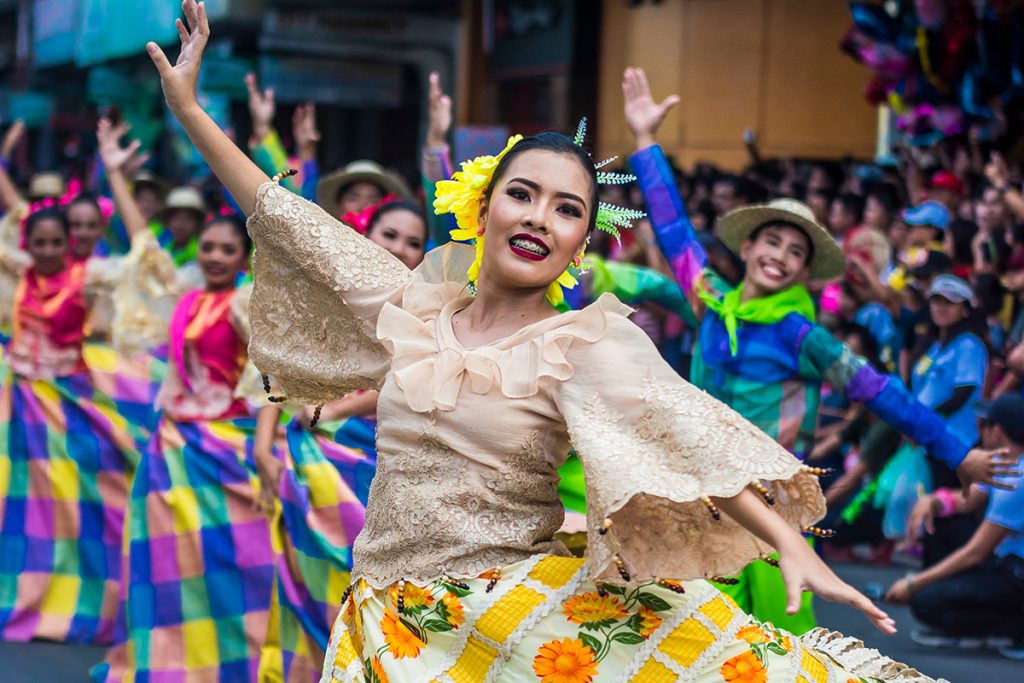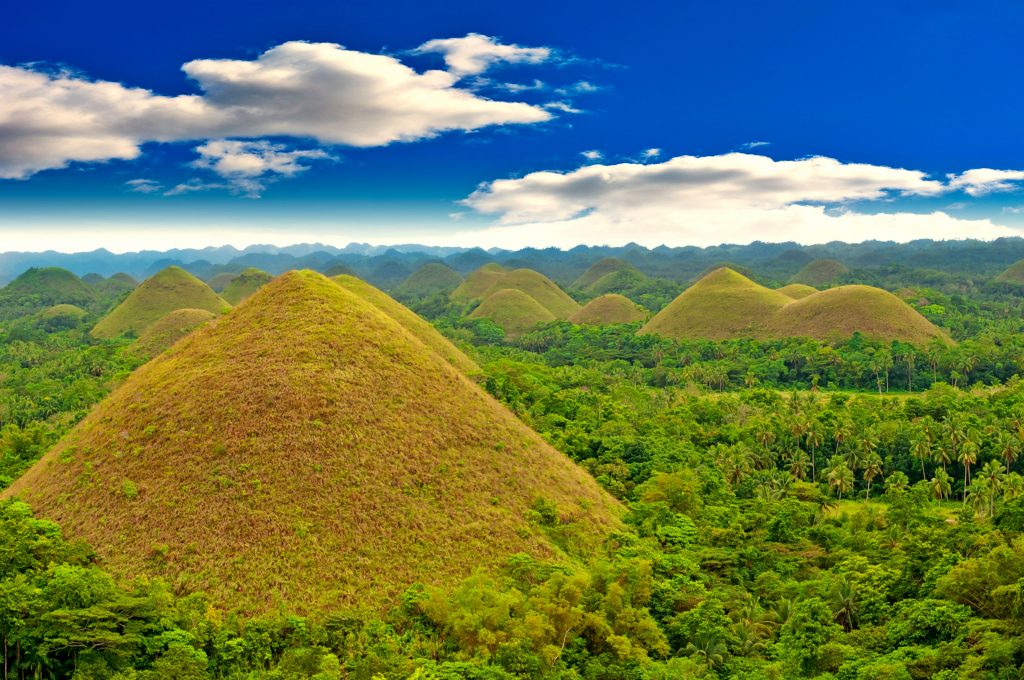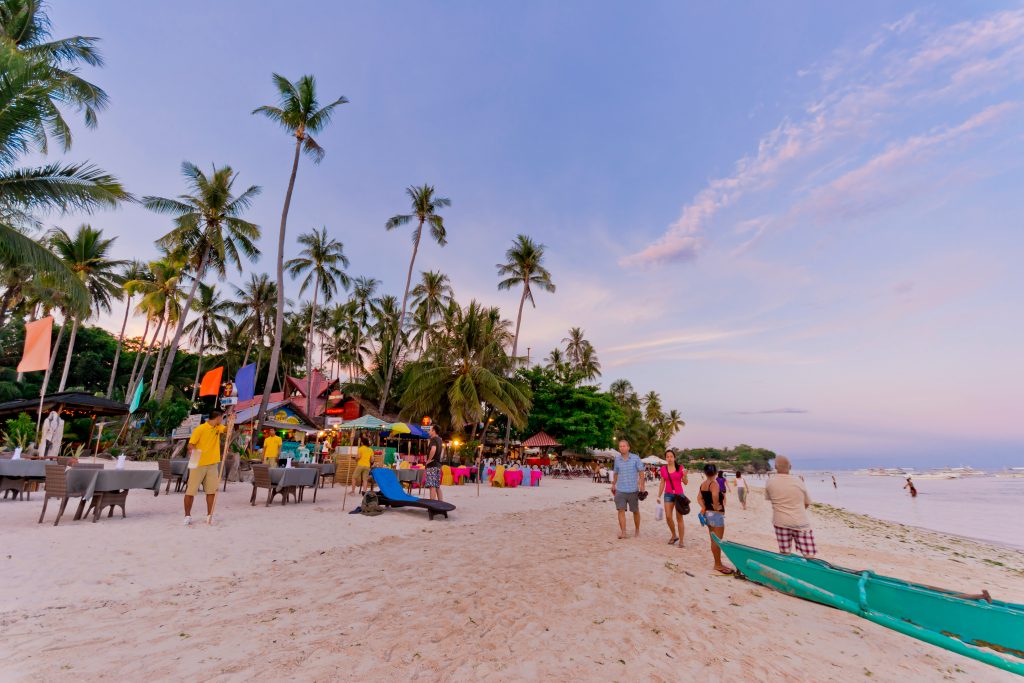
If not for the pandemic, Bohol should have been “sinking” this month.
It has always been a joke that the island province of Bohol “sinks” during the month May because the population multiplies twice, thrice, or even four times.
It’s a reverse exodus. They call themselves “balikbaryos,” literally “returning villagers.” “Boholanos,” or “Bol-anons,” would go back home from all over the world to their villages in Bohol during the month of May.
The word “fiesta” is Spanish for festivity to honor patron saints. The dates of fiestas in Bohol vary from town to town, yet most of the feasts fall in the month of May, making it the “fiesta month.”
The celebrations are characterized by an abundance of food and merriment. Not a single day passes without a fiesta somewhere on the island in honor of a patron saint.
Visitors enjoy the month-long revelry by hopping from town to town and to the “barangays” for the religious processions, live brass bands, street dancing, and fireworks. And food.
It’s the time of the year when old folks seem to have mastered the art of putting out most of their earnings for the year.
“Nagpapasalamat kami sa Ginoo kay sa panahon sa pista nagkakita ang tanan mga kaigsoonan ug kaparyentehan (We thank God because during the fiesta, families see each other,” the elders would say.
Some say that the number of “balikbaryos” is an indication that more people are becoming successful from the village. The larger the arrival means the more people able to save money to come home.
Joining the religious procession of the village’s patron saint is a fulfillment of a promise and a way of thanking God for bringing people back to where they came from.
In many placed, the town plaza would be converted into an entertainment center to raise funds for development projects.

In 1996, I went to visit for the first time my family’s village in Matabao, Tubigon town.
One evening, I witnessed middle-aged women holding plastic cups for the dance. The woman who fills the most amount of money in the cup is declared the “queen of the night.”
The “fiesta proper” is a day of house-hopping, eating, drinking, and dancing as as rice cakes, “kinilaw,” ube, and other local delicacies are laid on the table.
Every home is an “open house.” There is no need for anyone to be invited. One can just grab a plate and eat.
A day after the celebration, the “balikbaryos” would usually proceed to explore the more exciting side of Bohol.
Our family is blessed to hail from a province known for the famous “Chocolate Hills,” the tarsiers, the beaches of Panglao, the Loboc River, and the dolphins of Balicasag, Pamalican, and Cabilao islands.
The province prides itself of its beach resorts. One brochure even boasts that “all of them are gorgeous.” The province has a 151-kilometer coastline with coves and clean white sand beaches.

With an aggregate land area of 4,117.3 square kilometers, the terrain of Bohol is rolling and hilly as the island’s interior is generally flat although it is dotted with 1,268 mounds known as the “Chocolate Hills.”
My surname, “Gorecho,” is from a clan that originated from the village of Matabao in Tubigon town. But I was not born and wast not raised in the province.
My surname is not found in the Claveria Decree (Catalogo Alfabetico de Apellidos) when the “Indios” were forced to change their last names as a means to control the movement of people.
But my family name reportedly originated from Galicia in Spain.
I already traced eight generations that originated from the matrimonial bondage of Isidro Gorecho and Tomasa Cristobal.
It’s interesting to note that surnames seem to re-appear in other lines signifying intermarriage between not so distant relatives, a typical occurrence in the provinces.
The pandemic may have muted the pageantry of this year’s feasts in Bohol, but “Boholanos” will be hoping to “sink” their island next year.
Lawyer Dennis R. Gorecho heads the seafarers’ division of the Sapalo Velez Bundang Bulilan law offices. For comments, email info@sapalovelez.com, or call 09175025808 or 09088665786
Source: Licas Philippines
0 Comments